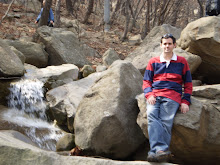
In China, it seems you can be put in prison for publicly claiming that people with ties to the police did something bad to your loved ones. Three women in Fujian province were jailed for posting online a video clip where one of the women said her daughter had been raped by a gang having ties to the Fuzhou city police. The daughter ultimately died.
According to the judge at the women's criminal trial, their actions had seriously harmed the interests of the state. It seems to me one thing that a country would censor speech that is directly critical of the regime or the philosophy by which it operates, and another thing entirely to punish anyone who tries to expose the blatantly criminal activity (even by the standards set forth for them by the party) that various state officials may be engaging in or covering up. I'm not saying I have any sympathy for the former, but the latter is too totalitarian for a state that sees itself as even vaguely modern.
I think, though, that as long as things go well in China economically, this sort of corruption will be easy to sweep under the table and keep out-of-mind for most of the news-watching public. It certainly is an interesting counterpoint to our own current example of how, when times are lean, heads finally begin to roll. Ah, Goldman Sachs, when times were good, we might have looked the other way at a little fraud.







